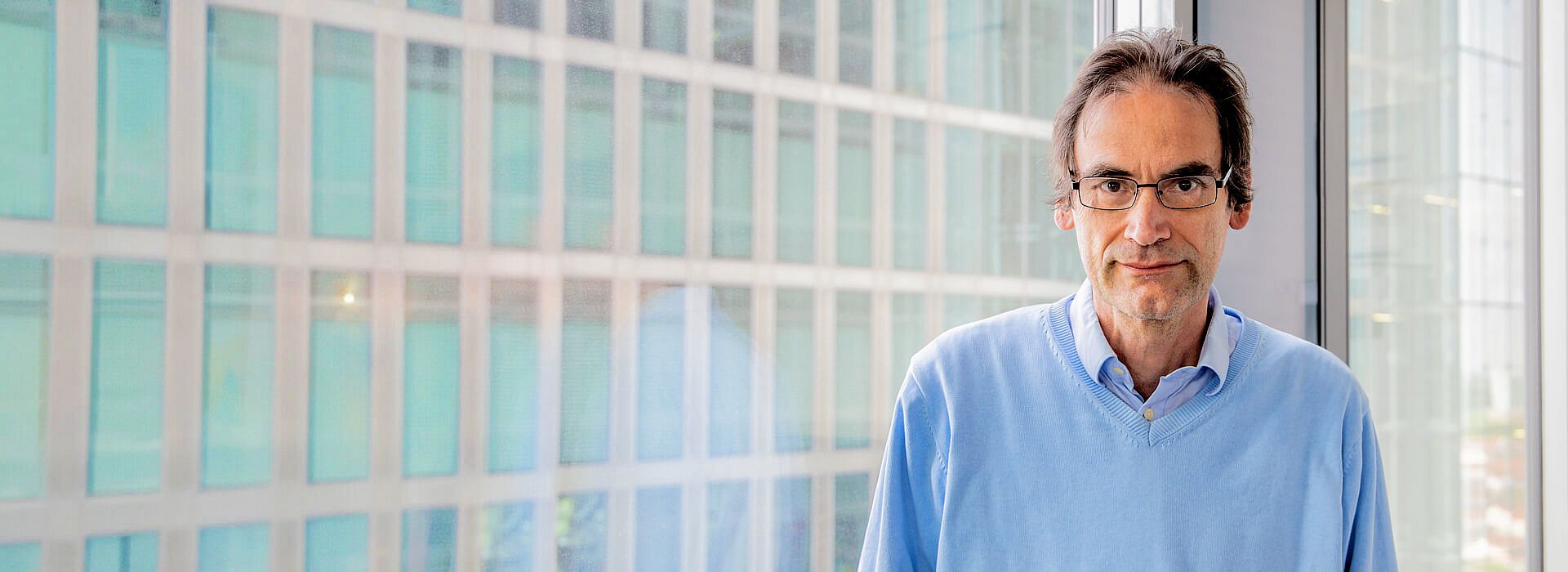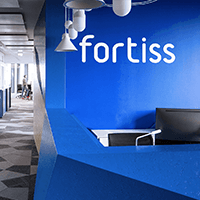Hello, Prof. Hamacher. You were recently appointed Research Fellow at fortiss for the research area “Architectures and Services for Critical Infrastructures”. Did you already have previous experience of working with fortiss and what was it like?
I am very pleased to have been appointed a research fellow. My connection to fortiss was strengthened primarily through the MEMAP (Multi-Energy Management and Aggregation Platform) project, in which we worked intensively on the development of an aggregation platform for energy management in neighborhoods. This platform aims to link different energy management systems in buildings in order to maximize the potential for energy efficiency.
In addition, I also wrote an assessment for doctoral students, which gave me a deeper insight into the research activities and expertise of fortiss. We are currently working together on the NEED (NEuE Daten für die Energiewende) project, which aims to establish a national energy data platform. This platform will make it possible to integrate and use various data sources to provide transparent and verified data for planning processes in the energy sector.
Where do you see the strengths of fortiss and which do you want to develop further?
In my opinion, the strengths of fortiss lie primarily in turning scientific ideas into practical products that can be used by a broad user base. In the field of energy system analysis in particular, fortiss has developed numerous software tools in recent years. However, these have so far only been used by a small group of users. I see an opportunity here to make the software accessible to more users by broadening the spectrum of use. In addition, there is a need for the development of standards for products such as energy management systems for buildings or industrial companies, which we have not been able to provide to this extent to date. We are therefore aiming to further expand these aspects and establish fortiss as a leading provider of practice-oriented solutions in the field of critical infrastructures.
Are there any specific projects that you are currently working on?
At the moment, I am mainly concentrating on the intensive collaboration in the NEED project. The collaboration within this project is going extremely well and we have many promising ideas on how we can expand this project further. The national energy data platform that has been developed can integrate various heterogeneous data sources and even generate synthetic data using suitable methods to supplement missing information. This platform is intended to provide planning principles in digital form and enable the semantic connection of different planning tools with the help of ontologies. The transparent, digital and verified database of the NEED project can significantly improve and accelerate planning processes, leading to a considerable reduction in costs and time.
We are also seeking new opportunities for cooperation with the Center for Combined Smart Energy Systems (COSES) at the Technical University of Munich in order to make the best possible use of our expertise and resources. The COSES laboratory (Cyber-Physical and Operation Systems Engineering Solutions) is another important area of research in which we are working on the development of innovative solutions for cyber-physical systems and operating systems. We are also focusing on the development and implementation of optimized energy management systems in order to meet the demand for energy-efficient solutions in various application areas.
Where do you see fortiss' contribution to the Bavarian and German energy landscape?
I see fortiss as a key player in the Bavarian and German energy landscape. Our contribution lies primarily in the development and implementation of innovative concepts for energy planning and optimized energy management. We focus on scientifically sound approaches that are also practical and attractive for companies, especially SMEs. Our research work aims not only to develop theoretical models, but also to create solutions that can actually be used by a wide range of stakeholders. In this way, we are helping to drive the energy transition at local, regional and national level. Our vision is to increase efficiency and sustainability in the energy sector, bridging the gap between research and practical application.
What advantages do companies have if they want to realize a project with you? Are there any specific offers that you can make to companies?
Companies that want to implement projects with us benefit from our extensive expertise in the field of energy management. We offer innovative concepts and tailor-made solutions based on the individual needs and challenges of each company. One specific offer we can make to companies is to provide them with better data for energy planning quickly and easily. We are also able to help municipalities make their energy infrastructures more efficient and implement sustainable energy solutions. Our strength lies in simplifying complex problems and offering practical solutions that create real added value for our customers.
In realizing these goals, fortiss uses and expands the Energy Lab in research projects to map different use cases and requirements. Techniques and methods for designing and modeling cooperating complex energy systems play a central role here. Standardized interfaces can be used to link different energy technology components such as battery storage systems, photovoltaic systems, sensors and devices for system control. Our experts are continuously developing new techniques and methods to design and model cooperating complex energy systems, with techniques for establishing interoperability also playing a key role. Artificial intelligence (AI) and machine learning (ML) are used to precisely describe and take into account physical interactions, system states and energy flows.
Furthermore, we offer customized solutions for companies, such as connecting to a local energy market or transferring data into models to analyze different scenarios and system variations. We also conduct hardware-in-the-loop experiments and offer consulting services to analyze and evaluate interactions and control mechanisms of cooperating systems through AI-based controls.


